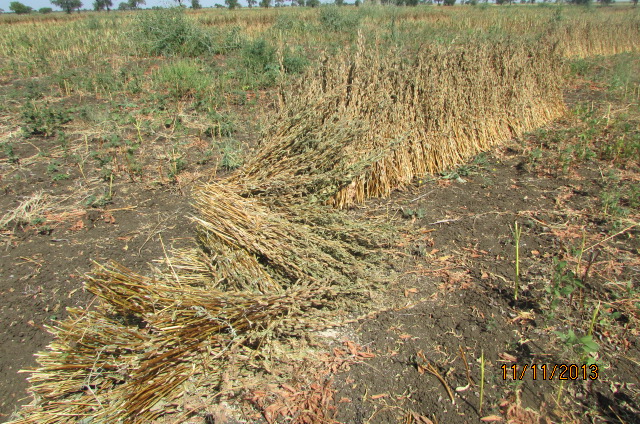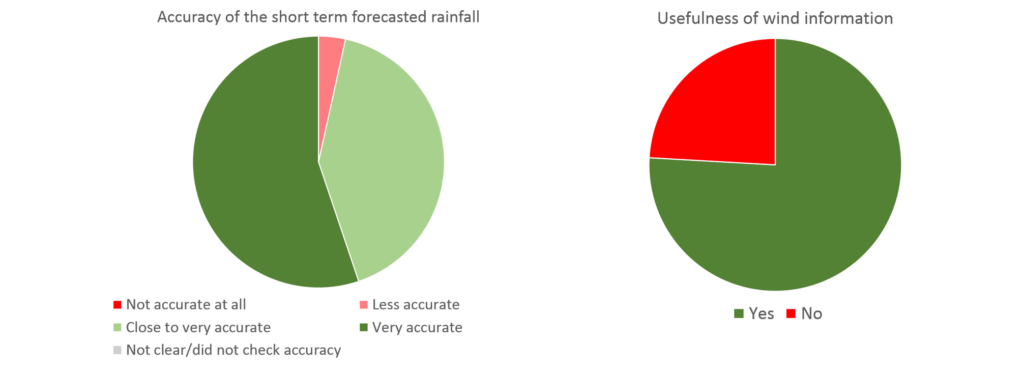Mobile weather services for Ethiopian sesame farmers
Sesame is a crop that is sensitive to weather variability; the annual yield is influenced by local weather, especially rainfall amounts and wind. Knowledge on coming weeks’ weather can help small scale farmers to plan their farm activities and address weather related risks. Over the year 2018, a mobile weather services was piloted with 3000 sesame farmers in Amhara and Tigray, two regions in the north of Ethiopia. The farmers received three times a week a weather forecast on their mobile phone in their local language. This pilot was part of the CommonSense project and was carried out in collaboration with the National Meteorological Agency of Ethiopia (NMA) and Sesame Business Network (SBN).
To validate the quality of the forecasts, two studies were conducted:
1) An evaluation of the model forecasts against ground stations of the Ethiopian National Meteorological Agency;
2) An evaluation of user experience with a representative group of farmers and agricultural experts.
The validation of the forecasts with the ground stations demonstrates that the forecasts have good skill in forecasting rainfall occurrence over the coming days. The model reaches an accuracy of 70-90% in the central highlands of Ethiopia and Rift valley. The model is a little “over-predictive”, meaning that rain is forecast a slightly more often than occurs. This result is interesting material for the experts of Weather Impact to continue improving the forecasts. Our future research will focus on the application different algorithms or bias corrections, to make the weather service even more trust-worthy for its users, especially during the onset of the rainy season.
The user evaluation makes clear that rainfall forecasts are, compared to temperature and wind, the most important source of information for the farmers. All the respondents confirmed they use the information for their planning and farm management. They use the information to determine the right time of sowing, to apply fertilizer or to protect their crops. Of the interviewed farmers, 96% finds the short-term rainfall forecasts being (close to) very accurate. The majority of farmers also uses wind and temperature forecasts to plan their management practices.
“I shared the weather forecast to my colleagues during coffee ceremony and other social gatherings. Some thought that I intervene with God’s work. Some laugh at me and others ask why it is only me who gets the SMS. But what I observed is that the weather forecast should be scaled-up to others. It is very useful to farmers knowing the weather condition of their area.”
This was Mr. Yelale Amebachews’ experience regarding the weather forecast.
Although the CommonSense project has come to an end at 31st of December 2018, the partners in this pilot are planning to continue the forecasting service over the year 2019 with funding from SBN.
We would like to thank our colleagues from Sesame Business Network; Melisew Misker and Ataklti Fissha, and from National Meteorological Agency; Endeg Aniley and Hebte Tsegaye, for the report of the user-evaluation. The testimonial and figures in this blog are cited from their report. The figure in the beginning was received from SBN.




